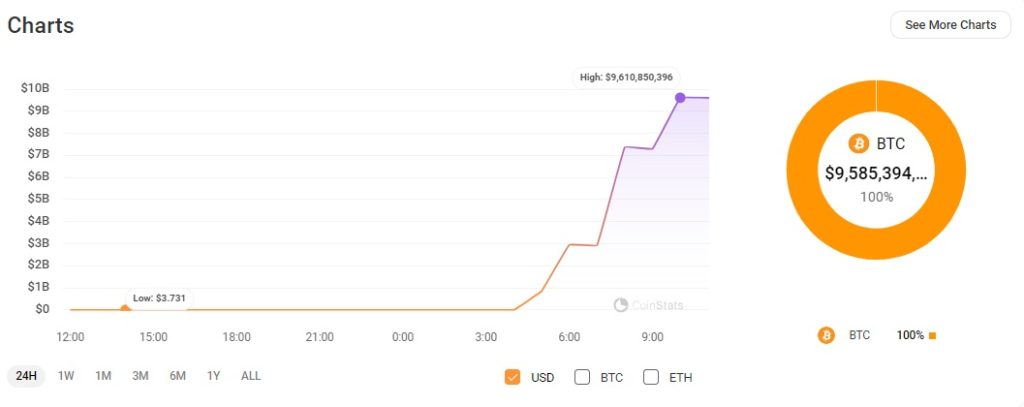Over the past two weeks, the German government’s persistent unloading of its Bitcoin reserves has significantly contributed to the downward pressure on Bitcoin prices, with notable involvement from figures like Justin Sun.
Sun has expressed a willingness to purchase the government’s Bitcoin holdings in an effort to stabilize the market. This systematic selling by the government has resulted in a 4.5% decline in Bitcoin’s value, pushing it to a recent low of $57,500.
Justin Sun’s Proposal for Market Stabilization
Justin Sun, the founder of Tron, has proposed a strategic acquisition of the German government’s entire Bitcoin holdings.
Since mid-June, a wallet associated with the German government has been actively selling Bitcoin, indicating a strategic move to decrease its cryptocurrency holdings.
This activity persisted into early July, with significant transactions noted. On July 4, the government-tied wallet executed a substantial transaction, transferring $172 million worth of Bitcoin to various recipients, including several prominent centralized cryptocurrency exchanges (CEXs).
Specifically, $75 million of this Bitcoin was sent to Coinbase, Kraken, and Bitstamp. This transfer suggests an intent by the government to liquidate a portion of its Bitcoin holdings through these exchanges.
Sun’s proposal, detailed in a public tweet, suggests an off-market purchase aimed at reducing the potential market disturbances that could ensue from the German government’s continued sell-offs.
This move by Sun highlights a strategic effort to stabilize the market by curtailing the volatility that such large-scale disposals could provoke.
While Justin Sun’s initiative underscores a proactive approach to safeguarding market stability, the German government has yet to disclose its reasons for the Bitcoin sale. Recent actions include the transfer of an additional 1,300 BTC to well-known crypto exchanges such as Kraken, Coinbase, and Bitstamp.
Over a brief period of 15 days, nearly 9,641 Bitcoins have been liquidated by the government, reducing its reserves to 40,359 BTC and eroding 18% of its total Bitcoin holdings. If the government maintains this rate of sale, it is projected to exhaust its Bitcoin reserves by the end of September.
The market has also been affected by significant liquidations. According to data from Coinglass, the Bitcoin market has seen nearly $300 million in liquidations over the past 24 hours alone.
These include $255 million from long positions and $37 million from short positions, reflecting the high volatility and risky nature of the market currently.
Mt. Gox Creditor Repayments and Market Repercussions
Furthermore, the potential initiation of creditor repayments by the now-defunct Mt. Gox crypto exchange adds another layer of complexity to the market dynamics.
Charles Edwards, founder of Capriole Investments, pointed out an unusual spike in BTC transfer volumes, involving tokens that had been inactive for the past seven to ten years.
This massive movement, linked to Mt. Gox, indicates that the long-awaited repayments to its creditors, who number around 127,000, may finally be underway. After over a decade, these creditors might now be looking to cash out their holdings, potentially leading to an increased supply of Bitcoin on the market.
However, there is a possibility that this influx of Bitcoin from Mt. Gox could be offset by the significant institutional interest in Bitcoin, particularly through investments in U.S.-based spot Bitcoin exchange-traded funds (ETFs).

Since their launch in January, these ETFs have amassed an impressive $52.5 billion worth of BTC, according to analytics from Dune.
The market’s fragility is further exacerbated by actions attributed to Bitcoin whales. Recently, an unknown entity sold a massive $180 million worth of Bitcoin in just three minutes, a move potent enough to force the price below the crucial psychological threshold of $60,000.
Additionally, another large transaction was recorded where a whale transferred 1,723 BTC, worth over $168 million, to Binance, likely indicating an intent to realize profits amid the ongoing market fluctuations.
These combined factors—governmental sell-offs, the initiation of Mt. Gox’s creditor repayments, and significant whale activities—are intricately linked, each playing a role in the current market instability and the broader economic implications for Bitcoin’s future.
This period marks a critical juncture for Bitcoin, as it navigates through governmental actions, market reactions, and the strategies of major financial players within the cryptosphere.
- Crypto Price Update July 24: BTC Maintains $66K, ETH at $3.4K, XRP, TON, and ADA Rallies
- Bitcoin Falls to $65K as Mt. Gox Transfers $2.8 Billion BTC to External Wallet
- News of Marathon Digital’s $138 Million Fine for Breach of Non-Disclosure Agreement Triggers a Bearish 2.5% of Its MARA Stock
- Are $530M Bitcoin ETF Inflows a Blessing or Caution?
- Metaplanet Teams with Hoseki for Real-Time Bitcoin Holdings Verification
- Building Secure Blockchain Systems: An Exclusive Interview with ARPA and Bella Protocol CEO Felix Xu
- Building The “De-Facto Crypto Trading Terminal”: An Exclusive Interview with Aurox CEO Giorgi Khazaradze
- Building a New Global Financial System: An Exclusive Interview With Tyler Wallace, Analytics Head at TrustToken
- “Solana is the Promised Land for Blockchain” — An Exclusive Interview with Solend Founder Rooter
- El Salvador: Where The Bitcoin Revolution Begins With A Legal Tender

 Why Trust Us
Why Trust Us







